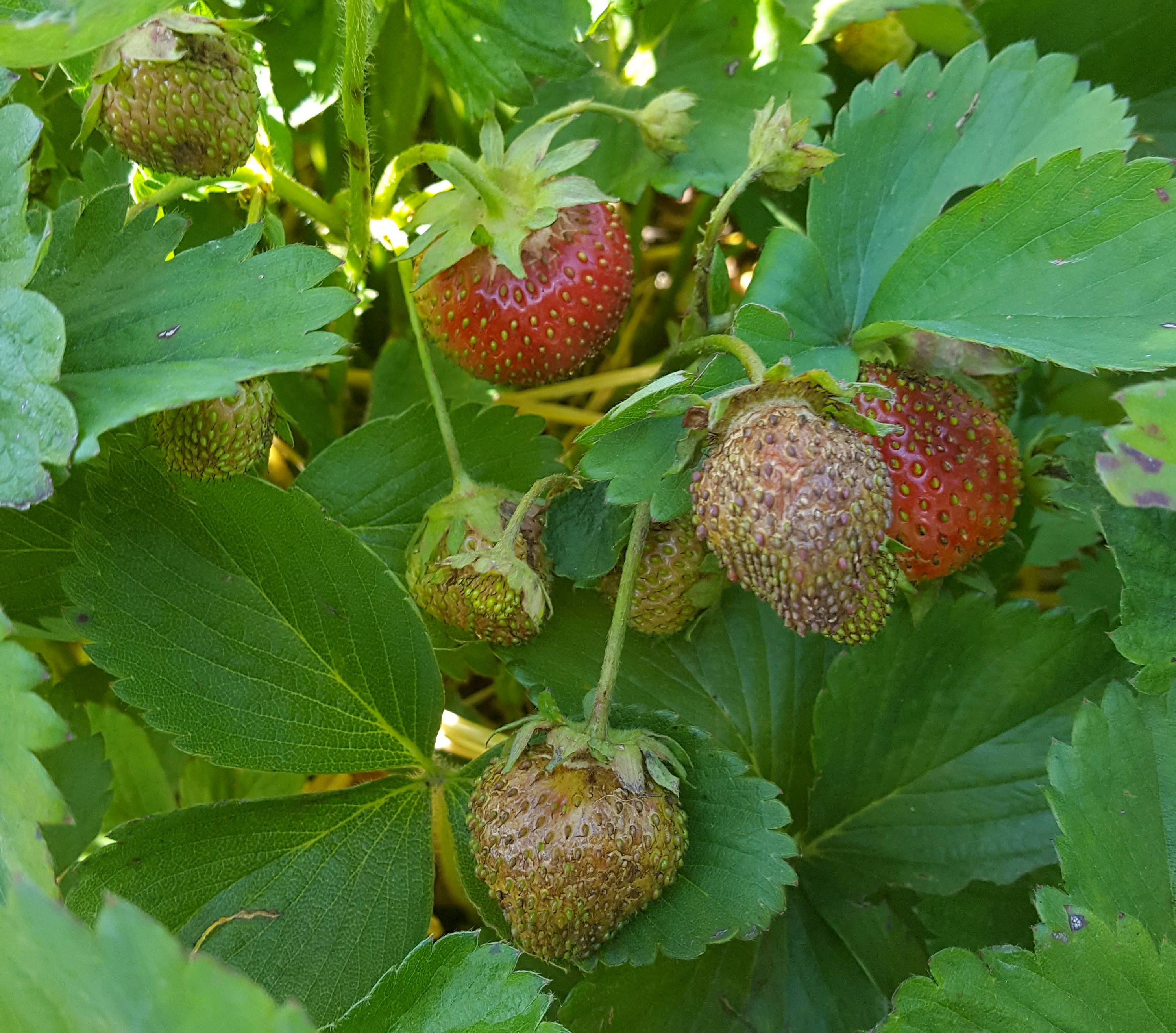West central Michigan small fruit update – June 9, 2020
Strawberries are in the green fruit stage and prevailing hot and dry weather is conducive for flower thrips outbreaks. Prevent fruit damage with careful monitoring and on-time insecticide applications.

West central Michigan is passing through a period of dry and hot weather that increases the need for supplemental irrigation in most small fruit crops, especially in blueberries and strawberries. These two crops are already in the green fruit stage when water supply is critical to produce a healthy crop. During the past seven days, daily minimum temperatures averaged 58 degrees Fahrenheit and the daily maximum temperatures averaged 83 F. These temperatures rapidly accumulated growing degree days (GDD) in the region. Currently, GDD accumulation in west central Michigan are 490 DD (base 50 F).
Regarding precipitation, there has not been a substantial precipitation since May 26. There have been 11 days with no significant rain or not rain at all. Thus, small fruit crops that are in bloom or in the green fruit stage, like blueberries and strawberries, that require supplemental irrigation.
Strawberries in west central Michigan are in the green fruit stage and are susceptible to damage by flower thrips. Prevalent dry and hot weather conditions are conducive for thrips outbreaks. There are already reports of thrips damage in some strawberry fields in Ottawa County. Be alert to the presence of this pest by constantly monitoring fields and applying the necessary pest control measures to prevent damage, fruit malformation and bronzing (Photo 2). Last year, some strawberry growers discovered the damage close to harvest when nothing can be done. Very often, thrips outbreaks are unexpected and by the time growers realize it, it is too late to control them.

Recommended insecticides to prevent thrips damage are Cormoran DC, SpinTor 2SC, Entrust 2SC and others. For more recommended products and doses, please consult the 2020 Michigan Fruit Management Guide (Michigan State University Extension Bulletin E0154).
Blueberries in west central Michigan are in the green fruit stage, although some late-season varieties still have some flowers. We have started seeing some June drop, especially in fields that had a problem with spring frosts or had pollination problems due to hot and dry weather conditions. We are not observing disease problems of consideration but preventive fungicide applications against fruit rots are in progress.
Regarding insect problems in blueberries, cherry fruitworm and cranberry fruitworm are flying and oviposition has already started. Insecticide applications are in progress in most fields with early varieties. Avoid using harsh insecticides if bees are present. Insecticides such as Dipel (Bacillus thuringiensis), Grandevo WDG and Venerate XC are good alternatives. These are also organic recommended products. If you are going to apply Intrepid, make sure you verify its application is legal in your area. Allegan, Monroe, Montcalm, Muskegon, Newaygo and Oceana counties have some restrictions, so check the label before spraying. For more insecticide recommendations and doses, check the 2020 Michigan Fruit Management Guide.
Finally, researchers at North Carolina State University in collaboration with the North American Raspberry and Blackberry Association (NARBA) and the University of Arkansas are conducting a survey to learn more about caneberry pricing and retail strategies for 2020, as well as the impacts of the COVID-19 pandemic. Information collected in the survey will be used to gain a better understanding of the marketing, pricing,and sales strategies currently being used by caneberry producers across the United States and Canada. Results will be published in the North American Raspberry and Blackberry Association’s member newsletter. A report will also be emailed to all participants who request this option.
The survey takes 10 minutes to complete. Participation is completely voluntary and responses will be recorded anonymously. No identifying personal information will be collected within the survey.
Take the 2020 Caneberry Pricing Survey
Thank you for your participation!



 Print
Print Email
Email




